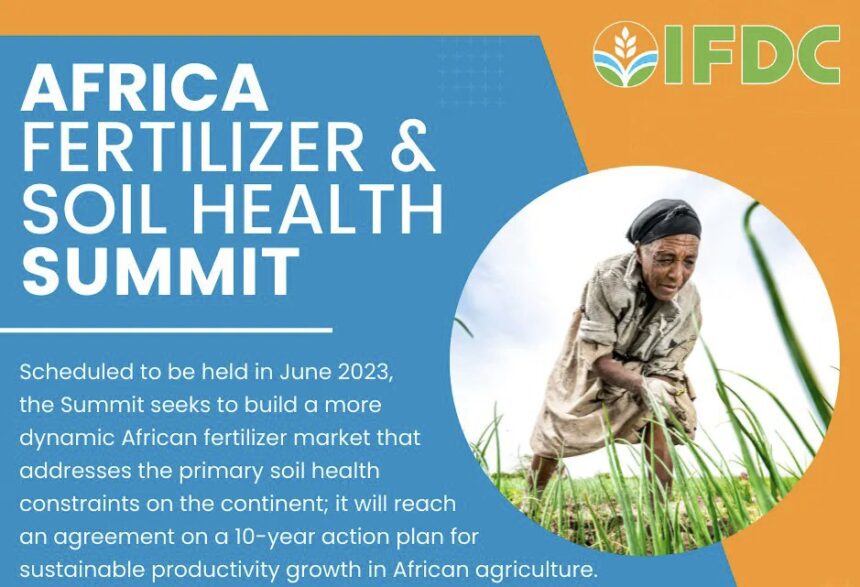The African Union Commission through the Department of Agriculture, Rural Development, Blue Economy and Sustainable Environment (DARBE) is organising Africa Fertilizer and Soil Health Summit 2023 (AFSH) in collaboration with the Government of Kenya.
The Objective of the Summit is to bring together all relevant stakeholders to highlight the crucial role of fertilizer and soil health in stimulating sustainable pro-poor productivity growth in African agriculture and to agree on an African Fertilizer and Soil Health Action Plan, as well as the Soils Initiative for Africa.
It is expected that a 10-year Action Plan, to be endorsed, which will deliver concrete recommendations for steps to be taken by African leaders and stakeholders over the next 10 years.
The Action Plan will provide a focus for new policies and investments that will enable farmers to work toward re-building soil health and ultimately increase yield responses and profitability of fertilizers.
It is also expected that the Action Plan will be endorsed by leading private and public sector partners across all African countries, with the following:
- Nairobi Declaration
- 10-year Action Plan
- Soil Initiative for Africa (SIA)
- Mechanism to finance the Action Plan (post-Summit implementation process).
The summit is expected to bring together the African Heads of State, high-ranking government officials, senior policy makers, private-sector players and civil society organizations. Other participants will include representatives of farmer organizations and development agencies, including NGOs, scholars and scientists, and representatives of leading donor organizations.
AFSH is scheduled to start from 5th -7th November 2023 in Nairobi, Kenya (Kenyatta International Conference Centre)/ KICC.
Background Information:
The Africa Fertilizer and Soil Health summit will be held to deliberate on Africa’s recent widespread decades-long decline in soil quality of farmland – a phenomenon that continues today and negatively impacts the agricultural production capacity and food security in the continent.
In June 2006, the Heads of State and Governments of the African Union endorsed the Abuja Declaration on Fertilizer for the Africa Green Revolution, a continental strategy to reverse the worrying trend of poor productivity of the African soils.
The Declaration focused on key targets required for agricultural growth, food security, and rural development in Africa, with a focus on the role of fertilizers. It recommended raising the use of fertilizers from 8 kg/(nutrients)/ha to 50 kg (nutrients) /ha in 10 years and the establishment of an African Fertilizer Financing Mechanism (AFFM) with the objective of improving agricultural productivity by providing financing required to boost fertilizer use in Africa to achieve the target of 50 kg of nutrients per hectare, as mandated by the Abuja Declaration.
Fifteen years after the Abuja Declaration, Africa’s agriculture and food security narrative has evolved significantly. The fertilizer market itself has changed, including the roles that private and public sector actors are playing. Another major change since Abuja, is the increased recognition of the critical role of sustainable soil management.
The decline in soil health has hindered the efficiency of fertilizer use and hampered agricultural productivity growth, food security, and environmental sustainability across the continent. As a result, economic growth and well-being—particularly for the rural population, who derive their livelihoods directly from agriculture – in the continent have been hampered. It is therefore, timely to review the state of Africa’s soil health to recalibrate the strategies being deployed for boosting the productivity of soils towards higher and sustainable gains in crop yields as well as economic growth and transformation, and overall well-being.









